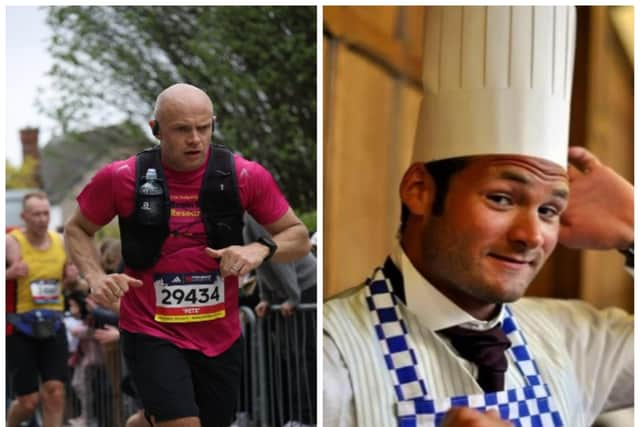Doncaster man to take on London Marathon for best friend who died from brain tumour
and live on Freeview channel 276
James Lowe, known to all as Jud, was diagnosed with an anaplastic astrocytoma which progressed to a glioblastoma (GBM) in November 2021.
Despite undergoing surgery, radiotherapy, chemotherapy, and travelling abroad to Germany for immunotherapy, he died in June 2022.
Advertisement
Hide AdAdvertisement
Hide AdHis friend, Pete Scholey, 42, from Doncaster, will be running the iconic 26.2-mile race on Sunday 21 April in aid of the charity Brain Tumour Research.


He said: “When I was told Jud had a brain tumour, my world fell apart. Jud was one of the nicest people you could ever meet, and he was loved by so many people. He was really caring, and he was genuinely interested in everyone he met. We were like brothers, I was lucky to have had that friendship.
“Other cancers get so much publicity and government funding but, despite being the hardest to treat, brain tumours receive so little. The brain is a massive mystery and more needs to be done.
"It drove Jud mad that there are more treatments that are available outside the UK. All Jud’s treatments were available in the UK but for an astronomical amount of money compared to in Cologne.”
Advertisement
Hide AdAdvertisement
Hide AdIn July 2017, Jud, dad to Francesca and Harry, had a seizure at his home in Nottinghamshire.
He was taken to Harrogate A&E where an MRI scan revealed a tumour, an anaplastic astrocytoma.
He underwent an awake craniotomy in November where surgeons removed 97% of the tumour. At the start of 2018, Jud had six weeks of radiotherapy and 12 rounds of chemotherapy.
Pete said: “Jud just carried on as normally as possible, determined to live his life.
"He never complained and never took a day off work.
Advertisement
Hide AdAdvertisement
Hide Ad"By March 2020, life had got back to normal for him, but in September 2021 he was struggling to pick things up with his left-hand, and he had problems moving his left foot. He took himself to A&E for scan which showed the tumour had become a GBM.”
Jud was put on steroids to reduce the swelling on his brain, and he had more rounds of chemotherapy.
In November 2021, he started travelling to Cologne in Germany for immunotherapy because the treatment is not available on the NHS. Jud also tried other treatments, including Avastin, before he died on 9 June 2022.
Carol Robertson, national events manager for Brain Tumour Research, said: “With one in three people knowing someone affected by a brain tumour, Jud’s story is, sadly, not unique.
Advertisement
Hide AdAdvertisement
Hide Ad"Brain tumours kill more children and adults under the age of 40 than any other cancer, yet just 1% of the national spend on cancer research has been allocated to this devastating disease since records began in 2002.
“We’re determined to change that but it’s only by working together we will be able to improve treatment options for patients and, ultimately, a cure. We’re really grateful for Pete’s support and will be there to cheer him across the finish line in April.”
Brain Tumour Research funds sustainable research at dedicated centres in the UK.
It also campaigns for the Government and larger cancer charities to invest more in research into brain tumours in order to speed up new treatments for patients and, ultimately, to find a cure. The charity is the driving force behind the call for a national annual spend of £35 million in order to improve survival rates and patient outcomes in line with other cancers such as breast cancer and leukaemia.
To support Pete’s fundraising, visit: https://www.justgiving.com/fundraising/peter-scholey7